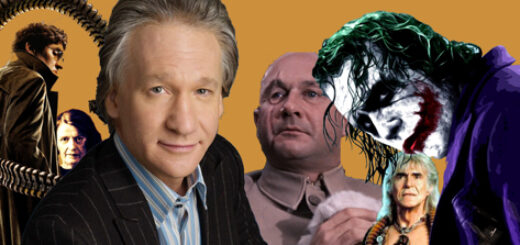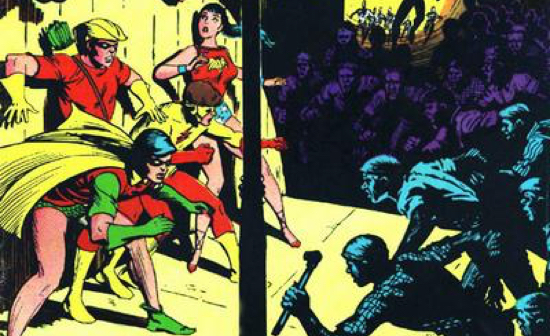John Ostrander: When He’s Wrong…
I’m a dyed in the wool pinko commie leftie and these Trump days are not great for me. So I find watching the various commentators like Samantha Bee, John Oliver, Seth Meyers, Trevor Noah and especially Stephen Colbert to be therapeutic.
Into this mix, I can usually add Bill Maher on his weekly HBO show, Real Time. Maher is very attack orientated and each week he winds up his hour with a rant on a given topic., Usually, I find him really funny and incisive but Maher does have his blind spots. He is anti-religion – Islam in particular. He thinks the majority of American voters to be morons and says so, which I find to be a broad generalization, counter-productive and not true.
His past two shows featured rants that gored a pair of my oxen. One was on space exploration, such as terraforming and colonizing Mars, and the other was a screed against super-hero movies.
Maher argued (ranted) that we should not be exploring space or even think of colonizing Mars so long as we have so many problems here at home. Neal DeGrasse Tyson rebutted Bill the following week when he pointed out that any technology that could terraform Mars could also terraform the Earth and restore what has been ravaged. I would add that a lot of our technological advances are a result of space exploration. That computer you carry in your pocket? That’s a result of the need to reduce the size of computers while making them faster and stronger to be of use to astronauts in space. Sorry, Bill, you didn’t think this through.
Then on his most recent show, Maher was quite disdainful about superhero movies in general.
He said there were too many superhero shows on TV and too many superhero movies at the cineplex and blamed the genre for the rise of Donald Trump. He said they “promote the mindset that we are not masters of our own destiny and the best we can do is sit back and wait for Star-Lord and a f*cking raccoon to sweep in and save our sorry asses. Forget hard work, government institutions, diplomacy, investments – we just need a hero to rise, so we put out the Bat Signal for one man who can step in and solve all of our problems.”
Really? Super-hero movies and TV are directly responsible for the presidency of Donald Trump? Right – and they also promote juvenile delinquency, Batman and Robin are really gay (not that that’s a bad thing) and Wonder Woman is a lesbian (not that that’s a bad thing). Wait, no. That was Dr. Frederic Wertham in his book Seduction of the Innocent back in the 1950s. He was every bit as full of shit back then as you are today, Bill.
And, besides, everybody these days knows that Wonder Woman is bisexual.
I have no idea where Maher pulled this notion of superheroes and Trump from. Maybe his ass. I doubt that he’s seen many if any of the films or TV shows that he’s knocking. He’s taken an attitude and applied his standard disdain, snark, and superior attitude to it. Just not much thought.
Why does this bother me? It’s unlikely that Maher’s words will cause the opening weekend grosses for Wonder Woman to drop. However, this is a topic I know something about and if Maher can get that so wrong, can I trust him on topics that I don’t know much about?
Maybe I’ve outgrown him.
Think I’ll go watch a good superhero movie and let it rot my brain. It’s been a long day.














